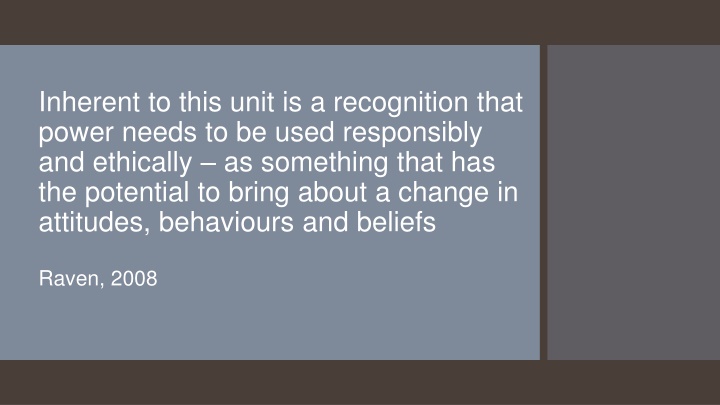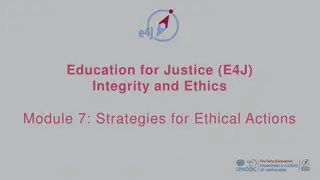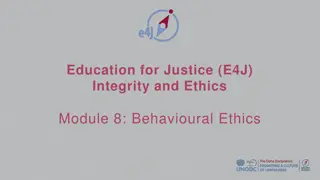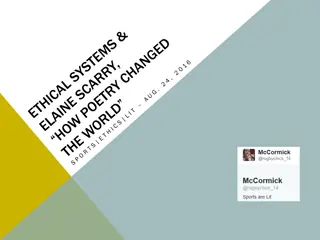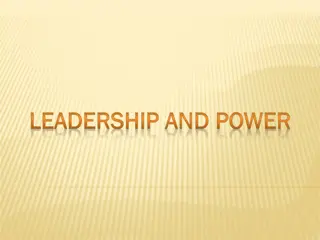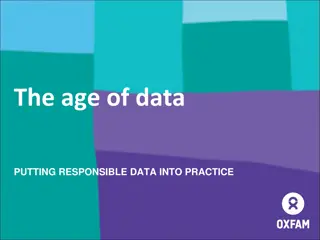Responsible and Ethical Use of Power for Positive Change
Recognition of the impact of power on attitudes, behaviors, and beliefs, highlighting the six sources of power as identified by French and Raven in 1959;1965. Emphasis on the importance of using power responsibly and ethically to bring about positive transformations in individuals and society.
Uploaded on Feb 15, 2025 | 0 Views
Download Presentation

Please find below an Image/Link to download the presentation.
The content on the website is provided AS IS for your information and personal use only. It may not be sold, licensed, or shared on other websites without obtaining consent from the author.If you encounter any issues during the download, it is possible that the publisher has removed the file from their server.
You are allowed to download the files provided on this website for personal or commercial use, subject to the condition that they are used lawfully. All files are the property of their respective owners.
The content on the website is provided AS IS for your information and personal use only. It may not be sold, licensed, or shared on other websites without obtaining consent from the author.
E N D
Presentation Transcript
Inherent to this unit is a recognition that power needs to be used responsibly and ethically as something that has the potential to bring about a change in attitudes, behaviours and beliefs Raven, 2008
French and Raven (1959;1965) identify six sources of power: 1. Coercive power that has a forceful and potentially punitive element 2. Reward power that has the ability to reward another for compliance 3. Legitimate power based on a belief that one has a formal right to make demands including an expectation that others will be compliant
4. Expert power based on a persons knowledge and skills 5. Referent power based on a perception (view) that the person is worthy of others respect 6. Informational power based on a person s ability to control information from others to achieve something
References Pierro, A., Raven, B., Amato, C., Belanger, J. (2013) Bases of social power, leadership styles, and organizational commitment , International Journal of Psychology, 48 (6), pp. 1122-1134. Wiley Online Library [Online]. Available at: https://onlinelibrary.wiley.com/ (Accessed: 1 February 2019). Raven, B. H. (2008) The bases of power and the power/interaction model of interpersonal influence. Analyses of social issues and public policy, 8, 1 22.
